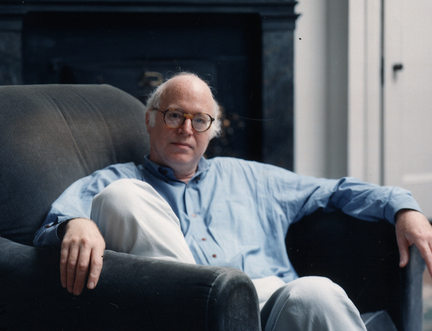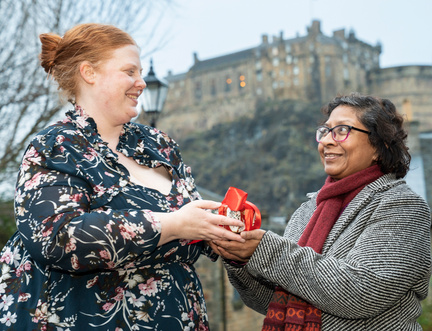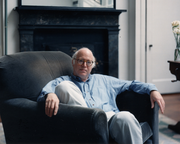More articles Tuesday 21 August 2018 9:30pm
Trump is a ‘symptom’ of the ‘search for brutal simplicities’ says Richard Sennett at the Book Festival

Donald Trump, who was among the first to create a global 'brand' of architecture despite not constructing many buildings, is 'a symptom of the search for brutal simplicities,' according to Richard Sennett. The Centennial Professor of Sociology at the London School of Economics, and former University Professor of the Humanities at New York University, was today speaking with Glasgow-based architect Jude Barber at the Book Festival.
'The city ought to be a place in which complexities and differences come together, a place which allows people to be able to manage complexity rather than flee from it,' he said.
Sennett has spent his career thinking about how to create environments in which people can live good lives. His new book, Building and Dwelling, is a distillation of this lifetime’s work on a topic which has taken him from New York and London to Medellin and Mumbai.
'When I started writing [the book] I had a fairly severe stroke,' he explained. 'I had to learn how to walk again and talk again; so, as I was writing the book, I was relearning space, as you do when every movement is something that you have to consciously think about. So I’ve taken the liberty, in the book, of explaining how public spaces are experienced by someone like me who is relearning them, the difficulties you experience when the brain doesn’t want anything to do with crowds and noise.'
One of the key concepts of the book is made clear in the title; the distinction between 'Building' and 'Dwelling'. For Sennett, this can be explored in the distinction between the city as a physical place, and the city as a 'mentality, compiled from perceptions, behaviours and beliefs'.
The second core concept in the book is the 'Open City'. 'When I first started teaching at MIT (Massachusetts Institute of Technology), my office was next to a group of engineers,' he said. 'Their notion of an ‘open’ experiment was one where you actually looked into problems and were interested in going down rabbit holes; ‘open’ meant being open to complexity. They contrasted this to the way their sponsor, Microsoft, approached things, which they called ‘closed’, where you had a hypothesis, you tested it and it was either right or wrong—and you were only interested in the right answers.
'For this early generation of people, this was a bad way to find things out. It made things work, it was practical, but you didn’t really understand what you were doing.
'When you apply the same thing to a city, a resilient strong city is one that is open to things that might not work, open in the sense of trying to understand complexity rather than clarity,' Sennett said. 'The ideas that we have about planning, about making something that works right out from the box, might provide very superficial and closed ideas about what the city might actually need. An open city needs to encompass failure in design; in the end you get a more robust city.'
Look, Listen & Read
- 2025 Festival:
- 9-24 August
Latest News
 Communities Programme participants celebrate success of 2024
Communities Programme participants celebrate success of 2024




